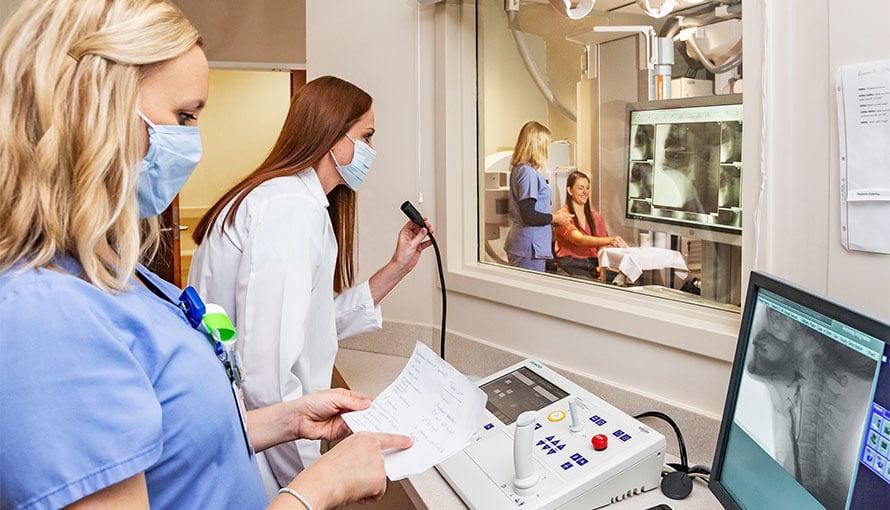The Role of a Speech Pathologist in Treating Speech Impairments
The Role of a Speech Pathologist in Treating Speech Impairments
Blog Article
How a Speech Pathologist Can Aid Improve Interaction Abilities
Effective interaction is a cornerstone of personal and expert success, yet many individuals deal with obstacles that hinder their capability to express themselves plainly. A speech pathologist is equipped to resolve these barriers via targeted evaluation and treatment strategies customized to each person's needs.
Comprehending Interaction Disorders
Comprehending interaction disorders is crucial for recognizing just how they affect individuals' capacity to reveal themselves and engage with others. Communication disorders incorporate a broad range of difficulties that affect speech, language, and social communication, often impeding reliable interaction. These problems can develop from various factors, including neurological problems, developmental delays, physical impairments, or emotional issues.
Speech conditions may show up as difficulties in articulation, voice, or fluency production, impacting how words are pronounced or talked. Language disorders, on the various other hand, include obstacles in understanding or using language, which can impede both spoken and non-verbal communication. Social communication problems are defined by troubles in the practical aspects of communication, such as taking turns in conversation or understanding social cues.
The repercussions of interaction conditions are extensive, impacting not only the person's capacity to communicate feelings and thoughts but additionally their social partnerships, instructional opportunities, and general top quality of life. Recognition of these problems can promote empathy and assistance, motivating reliable approaches for interaction and engagement. Comprehending the intricacies of interaction disorders is a vital step in the direction of advertising inclusivity and addressing the needs of those affected.
Role of a Speech Pathologist
Speech pathologists often play an essential function in treating and identifying communication conditions, utilizing a range of evidence-based strategies customized to each individual's requirements. These experts function with individuals throughout the life expectancy, from kids with speech delays to adults recouping from strokes or terrible brain injuries. Their competence encompasses a selection of communication issues, consisting of expression, fluency, voice, and language problems.
In restorative setups, speech pathologists make use of organized interventions created to improve communication abilities. They may apply approaches such as speech exercises, language games, and social communication training to assist in improvements in receptive and meaningful language capacities. Speech Pathologist. In addition, they educate clients and their family members regarding effective interaction strategies and flexible techniques to browse everyday interactions
Beyond direct treatment, speech pathologists team up with other health care experts, caregivers, and educators to ensure a detailed approach to therapy. They advocate for customers by offering sources and assistance, allowing individuals to achieve their communication objectives and enhance their general lifestyle. As professionals in the field, speech pathologists are vital in promoting reliable interaction, advertising independence, and enhancing social participation for those with interaction difficulties.
Evaluation and Diagnosis Process
The analysis and diagnosis procedure conducted by speech pathologists commonly involves an extensive analysis to recognize communication problems properly. This process starts with a detailed medical history, where the clinician collects pertinent information about the person's medical, instructional, and developmental background. Comprehending the context of the person's communication problems is essential for a precise diagnosis.
Complying with the medical history, speech pathologists use standardized examinations and casual assessments to assess various aspects of interaction, consisting of speech sound manufacturing, language comprehension, expressive language, and social interaction skills. These assessments are tailored to the person's age and particular issues, providing beneficial data for evaluation.
Observation is also a crucial component of the assessment procedure, as it allows the medical professional to see direct how the individual interacts in natural settings. Furthermore, meetings with member of the family and instructors can offer understanding right into the individual's communication challenges across various atmospheres.
Once the evaluation is full, the visit site speech pathologist manufactures the findings to identify a diagnosis and suggest appropriate interventions. This thorough assessment procedure makes certain that individuals obtain targeted support tailored to their unique interaction requirements, laying the foundation for efficient healing methods.
Restorative Techniques and Methods
Numerous therapeutic techniques and techniques are used by speech pathologists to resolve a variety of interaction disorders effectively. One extensively utilized approach is expression therapy, which concentrates on fixing speech appears with repeating and visual hints. This technique is especially advantageous for people with speech sound disorders.
One more reliable strategy is language intervention, which boosts both expressive and receptive language skills. This might include interactive published here tasks that advertise vocabulary advancement, sentence framework understanding, and conversational skills. Additionally, speech pathologists typically use social skills educating to enhance pragmatic language capabilities, making it possible for individuals to navigate social interactions extra effectively.
Fluency shaping and stuttering adjustment methods are especially made to help those experiencing fluency conditions. These strategies assist customers develop smoother speech patterns and manage the psychological and physical elements of stuttering.
In addition, different and augmentative communication (AAC) systems are employed for people with serious communication impairments. These systems, which can consist of motions, symbols, or digital tools, offer vital assistance for reliable communication.
Benefits of Speech Therapy

Additionally, speech therapy can help in creating essential listening and comprehension my latest blog post skills, cultivating better communication in conversations. People with cognitive-communication conditions can also benefit, as treatment concentrates on enhancing memory and analytic capacities, important for efficient communication.
Another vital aspect is the emotional assistance offered throughout treatment sessions. Speech pathologists create a risk-free environment, encouraging clients to overcome anxiety and stress pertaining to their interaction problems. This assistance can cause boosted self-worth and overall mental well-being.
Moreover, early intervention through speech treatment can stop more issues, making sure that individuals reach their full communicative possibility. In general, the benefits of speech treatment prolong beyond mere speech renovation, positively impacting different dimensions of life for those impacted by communication problems.
Verdict
In recap, speech pathologists play a crucial function in addressing communication disorders with evaluation, medical diagnosis, and customized healing interventions. By employing evidence-based methods, these specialists boost people' speech and language capacities, cultivating enhanced clearness, fluency, and social communication skills. The benefits of very early treatment underscore the relevance of looking for support from speech pathologists, as their expertise can considerably enhance communicative potential, ultimately bring about greater success in both expert and personal spheres.

Speech pathologists frequently play an important duty in dealing with and diagnosing communication problems, using a variety of evidence-based methods tailored to each person's needs. As specialists in the area, speech pathologists are essential in fostering efficient interaction, promoting freedom, and boosting social engagement for those with interaction challenges.

Report this page